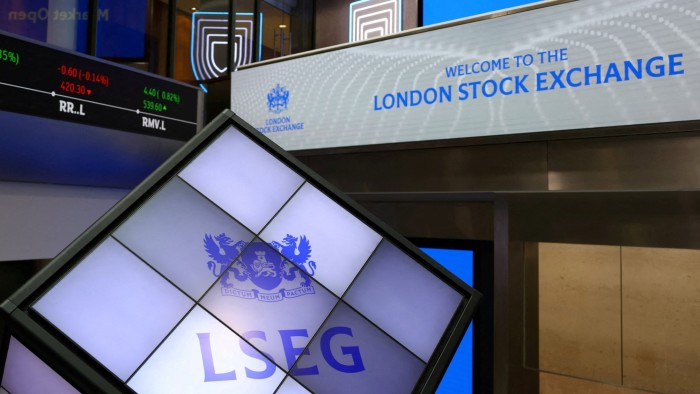Unlock the Editor’s Digest for free
Roula Khalaf, Editor of the FT, selects her favourite stories in this weekly newsletter.
London Stock Exchange Group is weighing whether to launch 24-hour trading as bourses race to extend access to stocks amid growing demand from small investors active outside normal business hours.
The group is looking into the practicalities of increasing its trading hours, according to people familiar with the situation, from the technology required to regulatory implications.
LSEG is “absolutely looking at it, whether it means 24-hour trading or extended trading”, one of the people said, adding that the exchange group was “having important commercial, policy and regulatory discussions” about the “ongoing topic”.
Pioneered in the US, longer trading windows have become a hot topic among exchange groups as they seek to modernise, spurred by the rise of younger investors who trade on their smartphones.
The 24-hour nature of cryptocurrency markets, where volumes are booming, has also led bourses to consider extending hours.
LSEG makes most of its income selling financial data to banks, brokers and others, with just 2.7 per cent of its first-quarter revenues this year coming from equities.
But its stock exchange remains at the heart of the City of London and is crucial in providing international investors access to shares in British companies. Its trading hours are from 8am to 4.30pm.
The group is considering various aspects of extended trading hours, including the technology required for the change, regulatory questions, the effects on companies with dual listings and the potential impact on liquidity, currently concentrated at the open and closing auction of the trading day.
The exploration is part of wide-ranging discussions into potential new products and services, another person said.
LSEG declined to comment.
A recent rush of applications by big US bourses for round-the-clock trading approvals has sparked a bigger debate about how such operations would work.
While small investors, trading via brokers such as Robinhood, have been enthusiastic users of out-of-hours trading, professional fund managers are still generally wary, worried about additional costs and the regulatory risks involved.
The New York Stock Exchange, Nasdaq and Cboe Global Markets, which together account for about two-fifths of all on-exchange stock trading in the US, have each applied to the US Securities and Exchange Commission in recent months to extend trading hours.
Their applications follow the in-principle approval last year of 24X, a new 24-hour bourse, although a final green light for its overnight operations has been delayed until the regulator is satisfied that several big industry-wide issues have been ironed out.
The Federation of European Securities Exchanges said in May that while longer trading windows may be beneficial, especially for attracting retail trading, “it remains to be seen whether such models are sustainable or beneficial in the long term”.
Official trading hours have long been a topic of debate, particularly in the US, where West Coast investors, three hours behind New York, are faced with an official close at 1pm.
Time zones mean the US overnight period matches well with Asian daytime hours, where many countries including South Korea, Japan and China have well-established communities of active individual traders.



